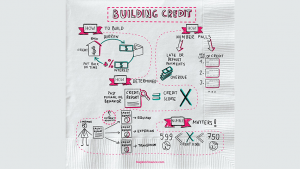
In today’s unpredictable world, an emergency fund is a cornerstone of financial security for every family. An emergency fund is a dedicated pool of savings set aside specifically for unexpected expenses like medical bills, urgent car repairs or sudden job loss preventing reliance on high-interest credit cards or loans in a crisis. This financial buffer not only helps you manage surprises but also provides peace of mind, knowing you’re prepared for life’s uncertainties.
How to Calculate Your Emergency Fund
The standard recommendation is to save three to six months’ worth of essential living expenses. Start by listing your monthly necessities: housing, utilities, groceries, insurance and transportation. Multiply this total by the number of months you want to cover. For example, if your monthly expenses are $3,000, aim for $9,000 to $18,000 in your emergency fund. Households with variable incomes, dependents or higher medical costs should consider saving toward the higher end of this range.
Building and Replenishing Your Fund
Building an emergency fund can feel daunting, but starting small makes it manageable. Begin with a modest goal, such as $500 or $1,000 and gradually increase your savings. Set up a budget to identify areas where you can cut costs and redirect those savings into your funds. Automating transfers to a separate, easily accessible account, like a high-yield savings or money market account, ensures steady growth and reduces the temptation to spend. If you need to use your emergency fund, replenish it by continuing your savings habits and, if possible, supplementing your income through side jobs or selling unused items.
Why It’s Essential
An emergency fund acts as your financial safety net, shielding you from debt and stress when unexpected expenses arise. In uncertain times, it’s not just about surviving financial shocks, it’s about maintaining stability and protecting your family’s future.
Do you still have questions? Talk with an RCB Bank Banker or Wealth Advisor today.
The opinions expressed above are the personal opinions of the author and meant for generic illustration purposes only. RCB Bank. Member FDIC.
Sources
- https://www.moneyfit.org/setting-up-emergency-funds-in-january-2025/
- https://www.compoundrealestatebonds.com/blog/emergency-fund-basics-how-much-you-really-need
- https://bettermoneyhabits.bankofamerica.com/en/saving-budgeting/emergency-fund-tips
- https://www.getsmarteraboutmoney.ca/calculators/emergency-fund-calculator/



